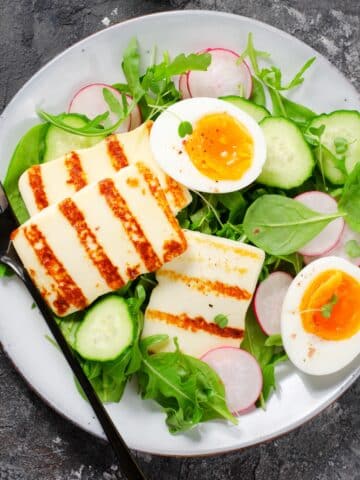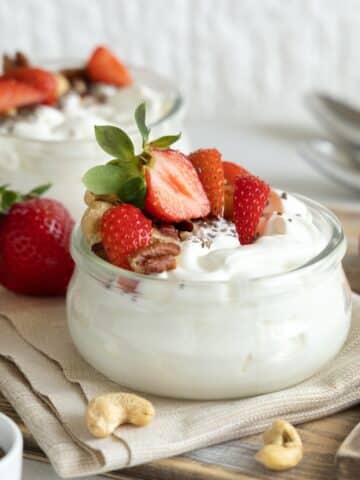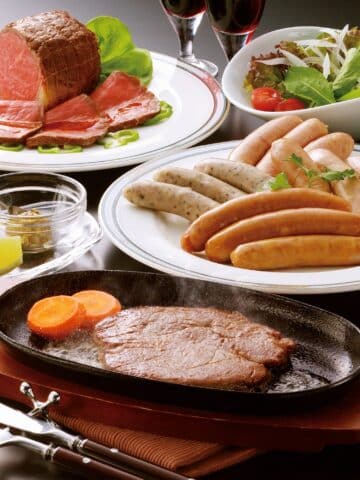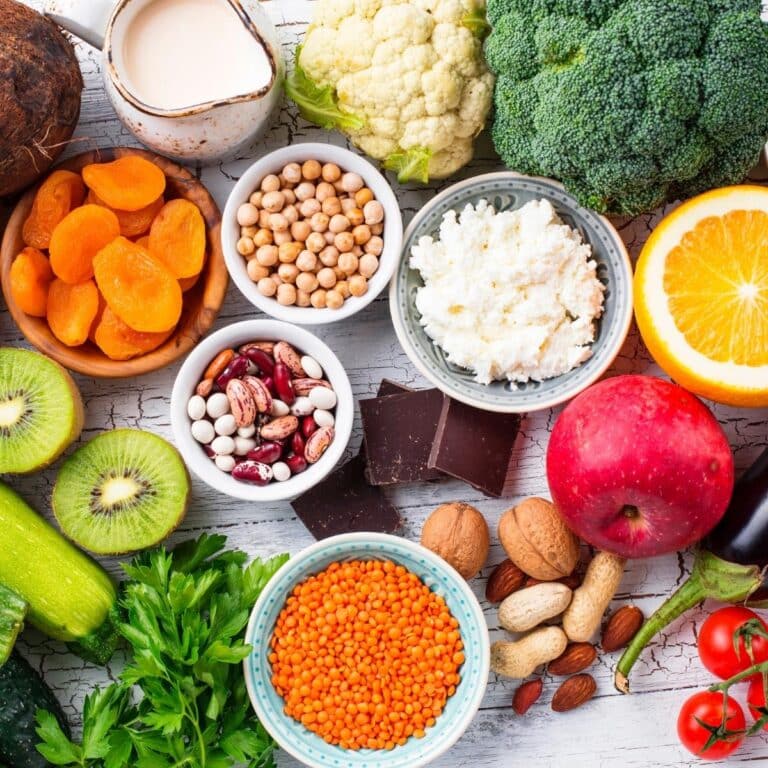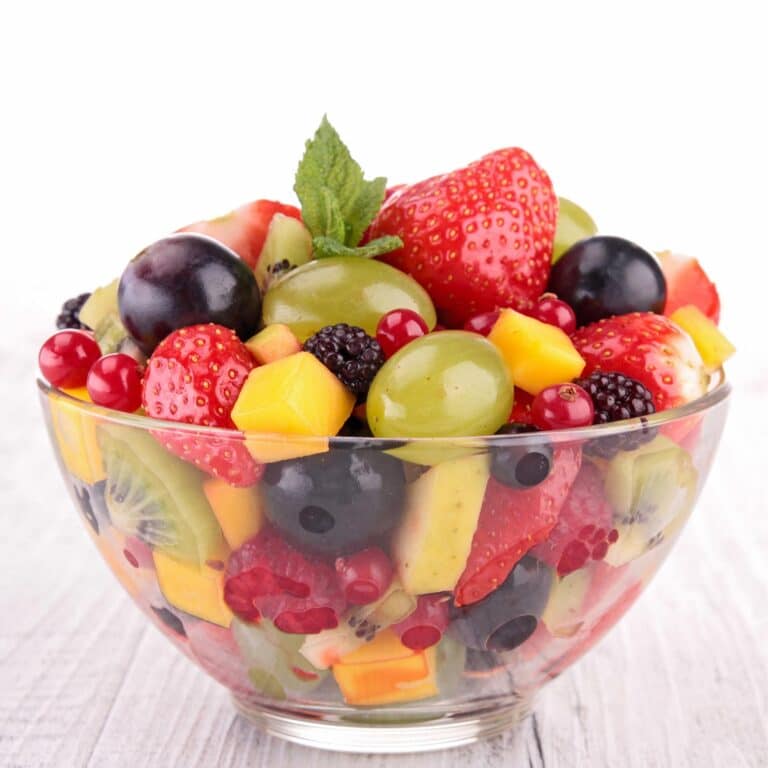Kidney Friendly Dinner
Ever wondered what's on the menu for a kidney-friendly dinner? You're in the right place! We'll guide you through understanding a renal diet, suggest foods to include and avoid, and share helpful cooking tips.
You'll discover delicious family meal ideas and recipes, while learning about dietary restrictions for kidney health. Let's make your dinner table not just a feast for the senses, but also a step towards better kidney health.
Dive in, it's your turn to cook up a storm, while dealing with Chronic Kidney Disease.
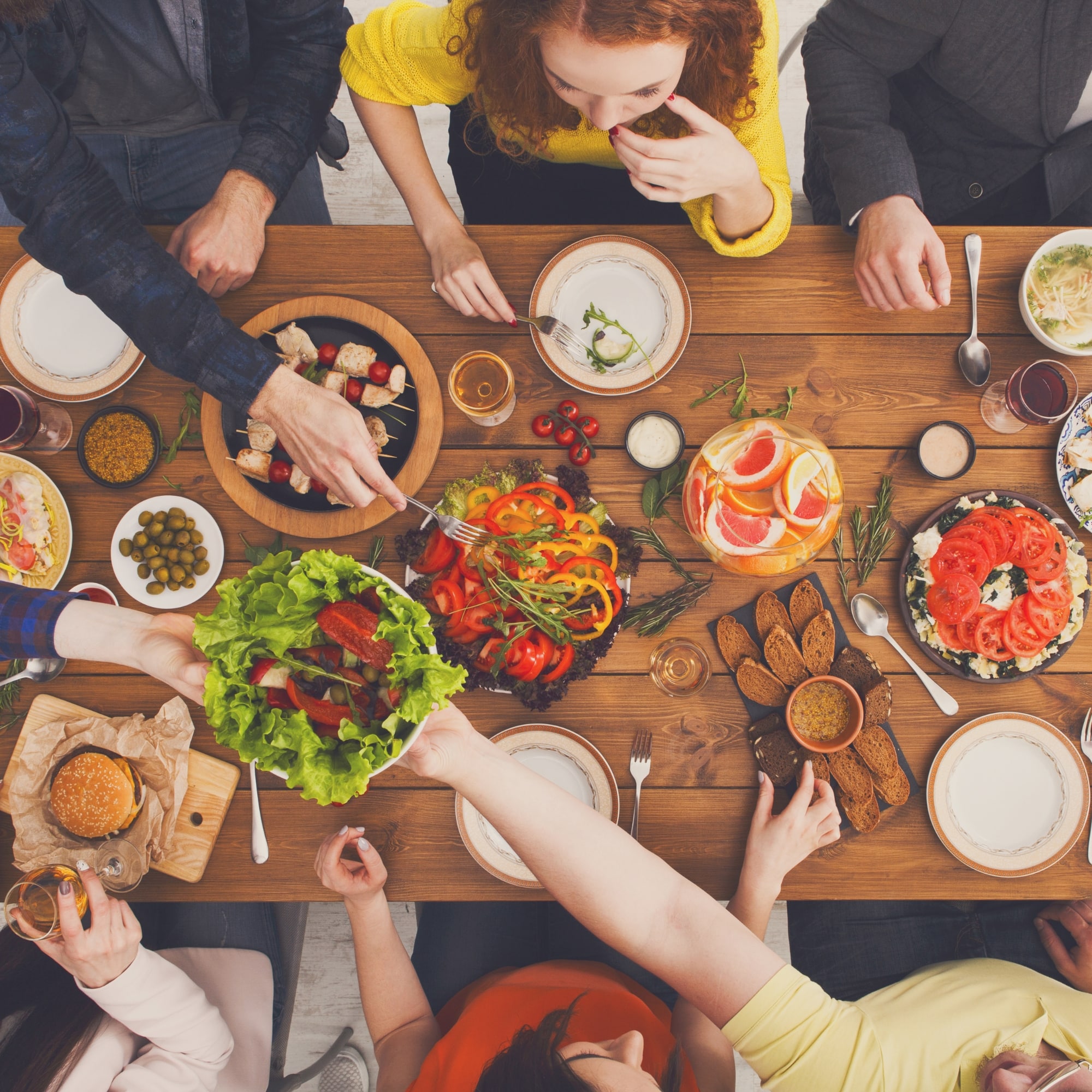
Jump to:
- Key Takeaways
- Understanding A Renal Diet
- Recommended Foods for Renal Diet
- Foods to Avoid for Kidney Health
- Renal Diet Cooking Tips
- Kidney-Friendly Family Meal Ideas
- Dietary Restrictions for Renal Disease
- Kidney-Friendly Recipes
- FAQs for Kidney Friendly Dinner Options
- Kidney Friendly Dinner Ideas Worth Creating
Key Takeaways
- Whole foods low in sodium, phosphorus, and potassium are recommended for a kidney-friendly dinner.
- Lean meats, fish, poultry, and soy-based options are suitable protein sources for a kidney-friendly dinner.
- Reducing sodium, phosphorus, and potassium in recipes is important for adapting them to be kidney-friendly.
- Hydration tips, such as opting for low sodium options, should be considered when planning a kidney-friendly dinner.
For More Recipes and Ideas --->> Get Your Free Meals and Recipes That Are Perfect for Pre-Dialysis Diets, Pre-Dialysis with Diabetes, or Dialysis Diets.
Understanding A Renal Diet
Understanding the renal diet is crucial if you're aiming to maintain a kidney-friendly lifestyle. This diet is a collection of guidelines that help manage dietary restrictions related to kidney health.
It's essential to grasp the basics of this diet, as it can significantly impact kidney function and overall wellness.
Renal Diet Essentials
Often, you'll need to adjust your daily meals and nutritional intake when following a renal diet, which is crucial in managing kidney disease and ensuring your overall health.
The key elements of a renal diet include Dietary Supplements, Fluid Intake, Phosphorus Control, and Meal Planning.
Dietary supplements can help fill nutritional gaps.
Regulating your fluid intake is essential to prevent fluid overload.
Phosphorus control avoids further damage to your kidneys.
Detailed meal planning can help you maintain a balanced and nutritious diet.
For those who prefer a plant-based diet, vegan options are available that are low in potassium and phosphorus.
Understanding these essentials of a renal diet will empower you to make informed choices about your kidney health.
Managing Dietary Restrictions
Navigating your dietary restrictions can be a daunting task when you're managing kidney disease, but it's essential for your well-being. Understanding your renal diet involves:
- Balancing Nutrients: Get the right mix of proteins, vitamins, and minerals. Too much or too little can harm your kidneys.
- Proteins: Lean meats, fish, and poultry are excellent choices.
- Vitamins and Minerals: Fruits, vegetables, and nutritional supplements can fill any gaps.
- Portion Control: Be mindful of how much you eat. Overeating can strain your kidneys.
- Use smaller plates and bowls to help keep portions in check.
- Fluid Intake: Too much fluid can build up in your body and impact your kidneys.
- Aim for six to eight glasses of water a day.
- Support Groups: They provide advice, encouragement, and understanding. They're an invaluable resource in your journey, especially for people with kidney disease.
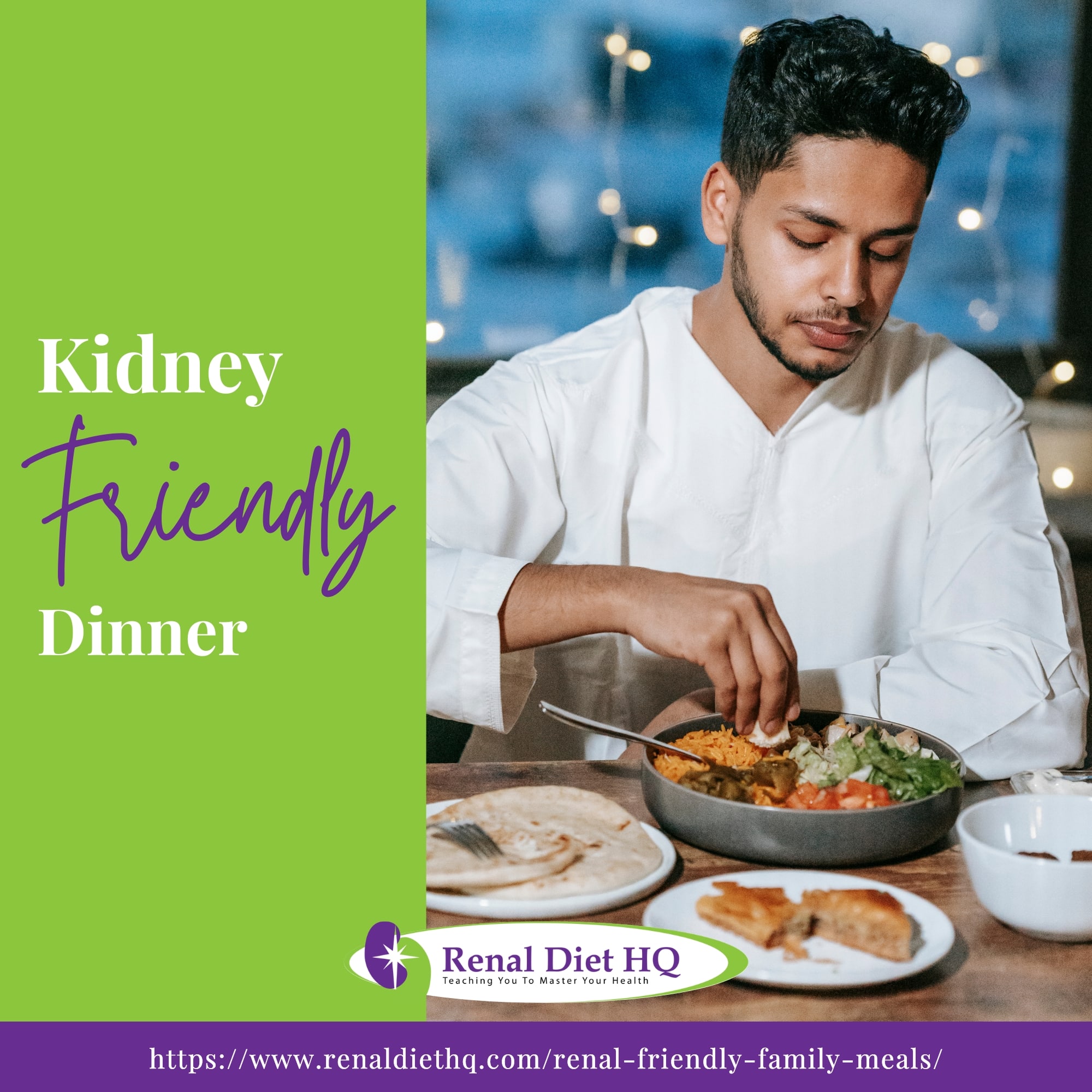
Recommended Foods for Renal Diet
As you plan your kidney-friendly dinner, it's crucial to prioritize whole foods. These fresh foods are typically lower in sodium, phosphorus, and potassium, elements you need to limit on a renal diet.
Incorporating lean protein options, can help maintain your overall health, while keeping kidney function in check, during any stage of kidney disease.
Whole Foods Preference
Regularly incorporating whole foods into your meals is a crucial step towards maintaining a kidney-friendly diet. Opting for organic consumption can help reduce the intake of harmful substances that stress the kidneys.
Choose from a variety of vegetarian options, which are naturally low in sodium and rich in fiber. Here are some recommended categories:
- Organic Foods
- Fresh fruits and vegetables
- Whole grains
- Vegetarian Options
- Legumes
- Tofu
- Gluten Free and Dairy Alternatives
- Quinoa
- Almond milk
- Wild rice
These foods not only provide gluten free benefits and dairy alternatives, but are also rich in antioxidants. Antioxidant rich foods help combat oxidative stress, further protecting your kidneys.
Enjoy these whole foods as part of your kidney-friendly dinner.
Lean Protein Options
In addition to the whole foods previously discussed, you'll find that incorporating certain lean proteins into your meals is another effective way to keep your kidneys healthy. Explore types of protein alternatives like lean meat and protein-rich vegetables.
Savor the fish benefits. Not only is it low in fat, but it's also packed with omega-3 fatty acids, which are known to reduce inflammation and protect kidney function.
For vegetarian options, consider soy-based recipes. Tofu, for instance, is a versatile ingredient that can be used in a variety of dishes. Don't forget about protein-rich vegetables such as peas, spinach, and lentils.
These kidney-friendly foods will help you maintain a balanced renal diet, while also satisfying your appetite.
Foods to Avoid for Kidney Health
While planning your kidney-friendly menu, it's crucial to remember certain foods that may compromise your kidney health. Consuming high sodium foods can pose risks, as excess sodium can burden your kidneys and cause damage over time.
Similarly, you'll need to limit potassium-rich foods, as too much potassium can lead to hyperkalemia, a condition harmful to kidney health.
High Sodium Food Risks
Though you might crave a salty snack, it's crucial to understand that consuming high-sodium foods can pose serious risks to your kidney health. Sodium's impact on your body is significant, potentially leading to high blood pressure and strain on your kidneys.
To maintain your kidney health:
- Be aware of high sodium symptoms such as swelling, headaches, and high blood pressure.
- Avoid processed foods as they often contain high levels of sodium.
- Prioritize hydration, which can help your kidneys function properly and flush out excess sodium.
- Make a habit of reading food labels.
- Look for items labeled 'low sodium' or 'no salt added'.
- Pay attention to the serving size, as it might be smaller than you think.
Potassium-Rich Foods Limitation
Often, you'll need to limit your intake of potassium-rich foods to keep your kidneys healthy. This is an essential part of potassium regulation, which is crucial for maintaining balance in your body. Excessive potassium can result in complications, as your kidneys struggle to filter it out, hindering their detoxification process.
Kidney supplements can assist in maintaining this balance, but it's not a standalone solution. Herbal remedies, such as dandelion or nettle, can also support kidney health. However, these should be used under professional guidance.
The most effective strategy, though, is making lifestyle changes. Reducing potassium intake, staying hydrated, and maintaining a balanced diet will go a long way in preserving kidney function. Remember, it's all about creating a kidney-friendly environment within your body.
Renal Diet Cooking Tips
When preparing kidney-friendly meals, it's crucial to consider how you're cooking your food. Lowering sodium and potassium in your recipes can be key for renal health.
In the following, we'll discuss useful techniques to reduce these elements in your cooking.
Reducing Sodium in Recipes
Your understanding of sodium reduction in your recipes is essential for maintaining a kidney-friendly diet. Here are some tips to help you make healthier dinner choices:
- Herbal infusions: These can add flavor without adding sodium.
- Low sodium snacks: Fruits, vegetables, and unsalted nuts are great options.
- Spice alternatives: Experiment with different herbs and spices that don't contain salt.
- Salt free seasoning: Many brands offer blends specifically designed to be salt-free.
These changes may feel challenging at first, but with time and practice, you'll be able to create delicious, kidney-friendly meals without excess sodium.
It's all about finding the right balance for your health and taste buds.
Potassium Reduction Techniques
Just as you've mastered the art of reducing sodium in your meals, it's now time to tackle another major concern in a kidney-friendly diet: controlling your potassium intake. This can be achieved through a variety of techniques such as Potassium Leaching Methods.
This involves soaking and boiling potassium-rich foods to leach out the mineral. You can also utilize Natural Potassium Reducers like rice water or green tea in your cooking.
Low Potassium Cooking Techniques, like roasting and grilling, can be helpful. Spicing up your meals with Kidney Safe Spices such as rosemary, thyme, and oregano can reduce the need for high-potassium ingredients.
Lastly, consider Potassium Replacements in Diet, like swapping bananas for apples or potatoes for turnips. Managing potassium is essential in your kidney-friendly dinner preparation.
Kidney-Friendly Family Meal Ideas
You're going to love these kidney-friendly family meal ideas that aren't only healthy but also delicious.
Let's start with an easy stir fry recipe, move on to a mouthwatering grilled chicken dish, and wrap it up with a recipe for noodles in a creamy sauce.
These meals aren't just good for you, they're also easy to prepare and are sure to satisfy the whole family.
Easy Stir Fry Recipe
Let's dive into an easy, kidney-friendly stir fry recipe that you can whip up for a quick and healthy family dinner. You'll need to consider:
- Vegetable choices: Opt for low-potassium veggies like bell peppers, onions, and cabbage.
- For color, consider red bell peppers or purple cabbage.
- Have some fun and add in veggies your family loves!
- Sauce alternatives: Use low-sodium soy sauce or a homemade garlic sauce.
- Avoid pre-made sauces, they're often high in sodium and phosphorous.
- Cooking methods: Stir frying is quick and retains the veggies' nutrients.
- Use a non-stick pan to reduce the amount of oil needed.
- Tofu inclusion: Add in firm tofu for a protein boost.
- Ensure the tofu is well-drained and marinated.
- Spice options: Garlic, ginger, and black pepper are all kidney-friendly.
- Avoid spice blends, they can be high in sodium.
Grilled Chicken Dish Preparation
Next up, you'll learn about a simple, nutritious grilled chicken recipe that's perfect for your kidney-friendly meal plan. The secret lies in marinating techniques and chicken seasoning. A marinade of olive oil, lemon juice, garlic, and herbs not only enhances the flavor but also tenderizes the chicken.
When it comes to grilling methods, choose a medium-high heat and ensure the chicken is cooked thoroughly to guarantee food safety. Pair this healthy protein with kidney-friendly side dishes such as grilled vegetables or a fresh salad.
Lastly, presentation ideas can elevate your dish. Arrange your grilled chicken and sides attractively on a plate, and garnish with fresh herbs.
| Marinating Techniques | Grilling Methods | Presentation Ideas |
|---|---|---|
| Olive oil, lemon juice, garlic, herbs | Medium-high heat, ensure thorough cooking | Attractive arrangement, fresh herb garnish |
Other Chicken Options
- Roasted chicken
- Roasted chicken and vegetables
- BBQ chicken pita pizza
- Basil chicken
- Buffalo chicken salad
- Chicken breasts/chicken breast recipe
- Chicken pesto pizza
- Chicken pita recipe
- Chicken piccata recipe
- Chicken tikka
- Crispy breaded chicken coated recipe
- Barbecue chicken Pita Pizza
- Skinless chicken thighs
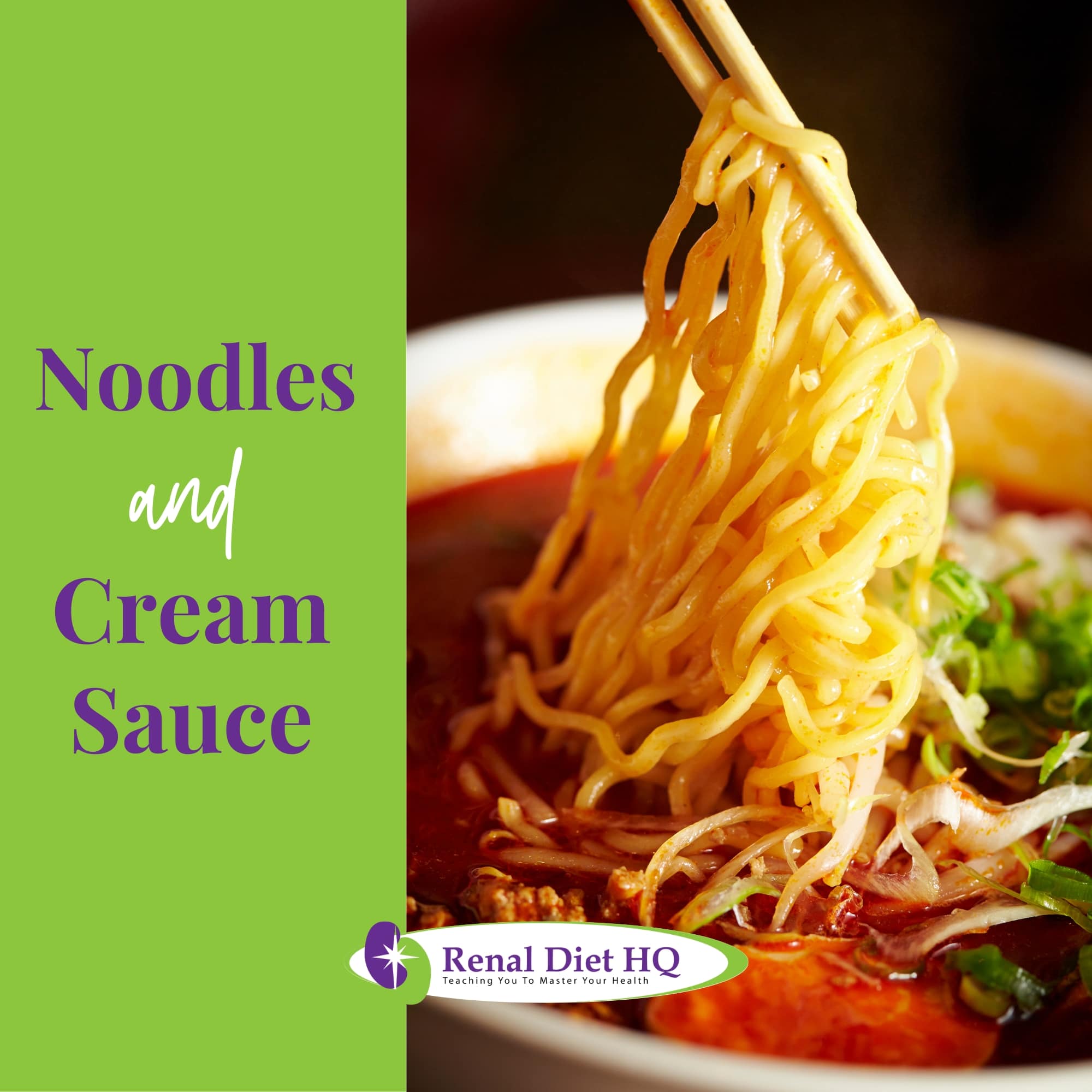
Noodles and Cream Sauce
After mastering the grilled chicken dish, it's time to explore another kidney-friendly meal, a scrumptious noodle dish with a delectable cream sauce. This dish not only satisfies your palate but is also packed with nutrients that are beneficial for kidney health.
Consider these options:
- Pasta varieties: Opt for whole-wheat or gluten-free noodles to maintain a balanced diet.
- Whole-wheat pasta: High in fiber and low in sodium.
- Gluten-free noodles: Ideal for those with gluten sensitivity.
- Creamy alternatives: Try using a vegan cream sauce made from cashews or tofu for a healthier twist.
- Sauce flavors: Spice up your sauce with kidney-friendly herbs and spices.
- Garlic: Adds a robust flavor.
- Oregano: Gives a Mediterranean touch.
Dietary Restrictions for Renal Disease
When managing your renal disease with a kidney diet, it's crucial to maintain a careful balance of sodium, potassium, and phosphorus in your diet. Depending on the stage of your condition, the strictness of your diet may vary.
This aspect of your health journey requires precision and knowledge, so let's explore how you can adjust your food choices for a kidney-friendly dinner.
Managing Sodium, Potassium, Phosphorus
In managing your renal disease, it's crucial to regulate your intake of sodium, potassium, and phosphorus for a kidney-friendly diet. This forms a significant part of your dialysis diet management and fluid intake control. Living a healthy kidney lifestyle involves a balanced nutritional intake.
- Dialysis diet management.
- Reduce processed foods, high in sodium.
- Avoid fruits rich in potassium like bananas, oranges.
- Fluid intake control.
- Limit your fluid consumption.
- Choose kidney-friendly dessert options like apple pie, avoiding ice-cream.
- Balanced nutritional intake.
- Consume controlled portions of high-phosphorus foods, like dairy products.
- Opt for lean proteins, whole grains, and vegetables.
Diet Strictness per Stage
You'll need to adjust your dietary restrictions based on the stage of your renal disease. This process, known as dietary adaptation, is crucial in stages of progression. An individualized diet plan promotes patient compliance, greatly enhancing therapeutic diet effectiveness.
| Stages | Dietary Restrictions | Dietary Adaptation |
|---|---|---|
| Early | Moderate sodium, protein | Gradual reduction |
| Middle | Low sodium, protein, phosphorus | Increased restriction, fluid control |
| Late | Very low sodium, protein, phosphorus, potassium | Strict control, possible dialysis diet |
As each stage progresses, the diet becomes stricter. Don't be disheartened. Remember, this stricter diet helps slow the progression of your disease and manage symptoms.
It's a challenge, but with commitment and the right guidance, you can adapt successfully. Ultimately, your health and wellbeing are the most important considerations.
Kidney-Friendly Recipes
Now, let's turn our attention to the exciting world of kidney-friendly recipes.
You'll discover how to create meals that aren't only delicious but also beneficial for your kidneys.
We'll also guide you on how to adapt your favorite recipes into kidney-friendly versions, ensuring you don't miss out on the flavors you love.
Creating Kidney-Friendly Meals
Let's dive into some kidney-friendly recipes that you can easily whip up for dinner. When dinner planning, prioritize meal prepping to ensure balance and moderation. Remember the importance of hydration and include plenty of water-rich fresh vegetables in your menu.
Below are some ideas for creating kidney-friendly meals:
Starter: Fresh vegetable salad, brimming with hydration and nutrients.
- Use leafy greens, cucumbers, and bell peppers.
- Opt for a light, kidney-friendly dressing like olive oil and lemon.
Main Course: Grilled fish with a side of cooked veggies.
- Choose low-sodium marinades.
- Steamed broccoli or zucchini are great options.
Dessert: Fresh fruit or a small serving of sorbet.
- Berries offer antioxidants while sorbets are hydrating.
Adapting Recipes for Chronic Kidney Failure
Adjusting your favorite recipes to be more kidney-friendly isn't as daunting as it may seem. Recipe modification is a key step in your dietary transformation for kidney care. It's all about understanding your ingredients and being creative with substitutions.
For instance, you can reduce sodium by substituting table salt with herbs and spices. Limiting phosphorus and potassium is also vital, so avoid foods like dairy products, nuts, and certain fruits and vegetables.
You'd be surprised at how many delicious meals you can create with these cooking techniques. Remember, ingredient substitution doesn't mean compromising on taste. It's about making healthier choices that are still satisfying.
With careful recipe modification, you can enjoy your favorite dishes while keeping your kidneys happy.
FAQs for Kidney Friendly Dinner Options
You're looking for kidney-friendly snacks that are quick and easy, right? Consider fruits and veggies, they're great sources of beneficial fiber.
Try portion control advice like using smaller plates.
For flavor, opt for sensible salt alternatives such as herbs and spices.
Remember, hydration is crucial, so drink plenty of water in between.
Follow these snack preparation tips and you'll not only satisfy your hunger but also take care of your kidneys.
Ever thought about how renal diet implications can change your life? Dietary challenges can cause major lifestyle modifications. You're now reading food labels, controlling portions, and watching nutrient intake. It's a lot, isn't it?
The emotional impact can be significant. Meal planning becomes critical, but it's not impossible. With the right guidance and a positive mindset, you can manage your health effectively and continue to enjoy food.
When dining out, you've got to make smart choices to maintain a renal-friendly diet. Carefully select your restaurant, opt for ones that allow menu modifications. Keep your hydration habits in check, opting for water or unsweetened beverages.
Limit sodium intake by requesting less salt in meals. Be cautious with alcohol consumption as it can affect kidney function.
It's not just about what you eat, but where, how, and with whom you eat it.
Kidney Friendly Dinner Ideas Worth Creating
Nurturing your kidneys is like tending a garden. Mindful selection, careful preparation, and balanced portions help it flourish.
Embrace kidney-friendly foods and steer clear from harmful ones. Master the art of renal diet cooking to ensure your meals are kidney-friendly.
Let your dinner table bloom with wholesome, kidney-loving dishes. Remember, each dietary decision waters the roots of your health, letting you thrive despite renal disease.
With these recipes and tips, you're ready to grow a kidney-friendly lifestyle.

